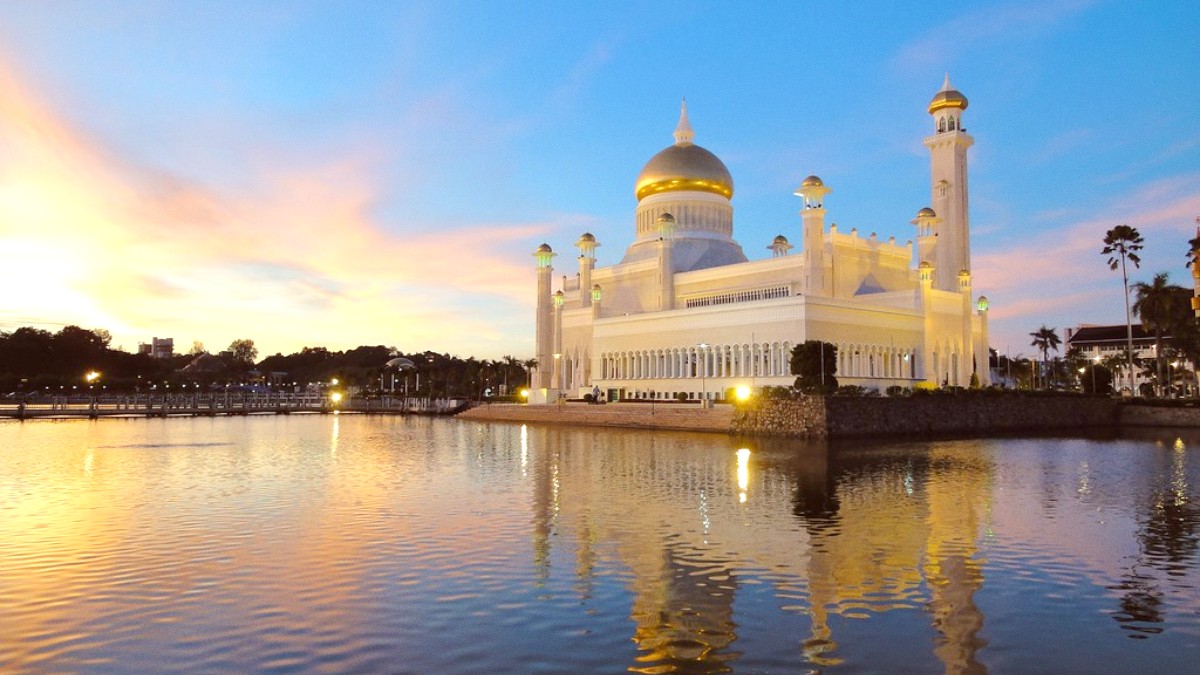
Brunei
Temperatures remain consistently warm, with little variation between months. Nights also stay warm. Rain falls year-round. Brunei sees two main monsoon seasons. The Northeast Monsoon runs from November to March. This period brings heavier and more prolonged rainfall. The Southwest Monsoon occurs from May to September. This period typically sees milder rain, often in short, intense bursts.
Expect high humidity levels every day. This causes the air to feel heavy and warm. Dress in light, breathable fabrics to manage the humidity.
Brunei does not lie in a hurricane-prone zone. The main weather events relate to the monsoon seasons. Be aware of the Northeast Monsoon (November to March) for its heavier rain. The Southwest Monsoon (May to September) brings generally milder conditions.
The climate stays consistently hot and humid. Local weather forecasts provide up-to-date information, especially during the rainy season.
February to April
Less rainfall, more sunshine. Better for outdoor activities.
Accommodation prices may increase. More tourists.
May to August
Fewer tourists, quieter experience. Possible hotel deals.
Humidity rises. More frequent showers.
September to January
Lowest prices for flights and accommodation. Lush landscapes.
Heavy rain can disrupt outdoor activities. Flash floods.
February to April has the best chance of dry weather for exploring Ulu Temburong National Park or taking river cruises. These months have better conditions for hiking and wildlife viewing.
Visit mosques, museums, and Kampong Ayer year-round. Many cultural attractions are indoors or have covered access. Rain showers do not significantly impact these visits.
Best in drier months (Feb-Apr).
More enjoyable with less rain (Feb-Apr).
High season offers better light for outdoor shots.
Great year-round regardless of rain.
Check specific dates for festivals and holidays.
Plan your visa and entry requirements well in advance of your trip. Policies differ based on your nationality.
Many countries benefit from visa-free entry for varying periods. This applies specifically to Commonwealth nations and ASEAN members.
Your passport must remain valid for at least six months beyond your intended stay in Brunei. Immigration officials strictly enforce this rule.
For those needing a visa, services can streamline the application process, ensuring all documents are correctly prepared.
Plan your budget for Bandar Seri Begawan. The Brunei Dollar (BND) is the local currency. Often called Ringgit Brunei, it pegs 1:1 with the Singapore Dollar (SGD). Both currencies are accepted interchangeably in Brunei.
Automated Teller Machines (ATMs) are widely available throughout Bandar Seri Begawan. Major banks include Baiduri Bank, Standard Chartered, and BIBD. Inform your bank about your travel plans to avoid card suspension.
Most hotels, larger restaurants, and shopping malls accept credit cards. Smaller eateries and market stalls prefer cash payments. Carry enough cash for smaller purchases and local transport. Exchange foreign currency at banks or licensed money changers. The airport also offers exchange services, but rates may be less favorable.
Daily Costs
BND 45-95 (approx. USD 33-70)
Hostels, budget guesthouses / Local eateries, hawker stalls
Daily Costs
BND 135-270 (approx. USD 100-200)
Mid-range hotels, boutique / Mid-range restaurants, occasional nicer meals
Daily Costs
BND 350+ (approx. USD 260+)
5-star hotels, luxury resorts / Fine dining, international restaurants
Eat local at hawker centers, visit free attractions like mosques and museums, and use public transport for shorter distances. Buy large bottles of water for hydration. Consider group tours for activities like Ulu Temburong National Park.
Brunei maintains a low crime rate, making it a safe destination. However, some health precautions are necessary due to the tropical climate.
Brunei has no specific vaccination requirements for entry unless you arrive from a yellow fever endemic area. If you come from such a region, a yellow fever vaccination certificate is necessary.
Tropical climates bring specific concerns, but simple prevention methods limit risks during your stay.
Consider travel insurance for your trip to Brunei. Research providers carefully to ensure their policies meet your specific needs.